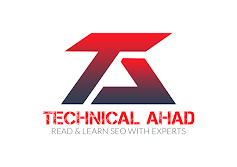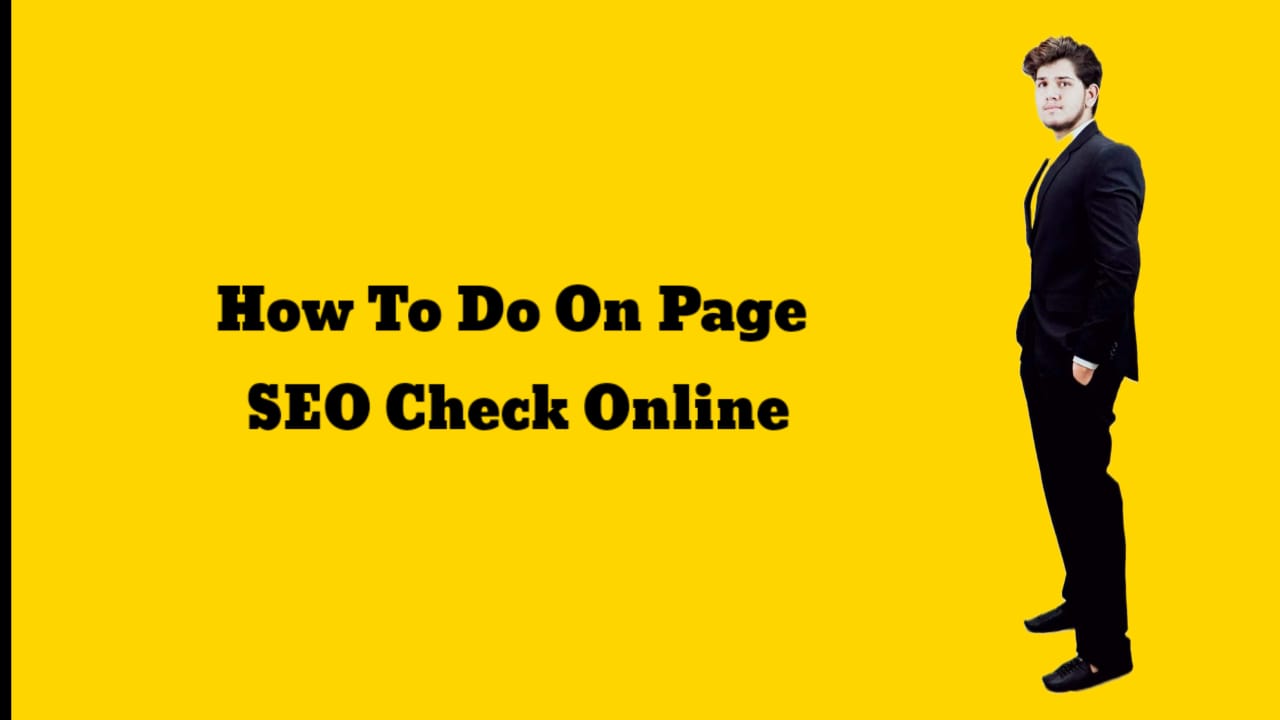On page SEO check online. In this blog, we will show you through the process of conducting an on page SEO check online, that provides valuable insights to enhance your website's performance.
In today's digital terrain, search engine optimization (SEO) plays an essential position in improving the visibility and ranking of websites. One important part of SEO is on-page optimization, which involves optimizing particular web pages to rank higher in search engine results. However, conducting an on page SEO check online is essential to identify areas for improvement and ensure your website follows best practices. This blog will show you through the process of conducting an on page SEO check online to enhance your website's performance.
Understanding On-Page SEO
On-page SEO refers to the optimization techniques implemented directly on individual web pages to improve their search engine rankings. While it involves various factors, including keyword research, content optimization, meta tags, URL structure, internal linking, and more. By focusing on on-page SEO, you can provide search engines with relevant information and enhance the overall user experience on your website.
Importance of On Page SEO Check Online
Performing regular on page SEO check online is crucial to ensure that your website aligns with search engine algorithms and user expectations. However, by conducting an online on page SEO check, you can identify areas that need improvement and make necessary adjustments to boost your website's visibility, organic traffic, and conversion rates. These essentials improvement are mentioned below.
Keyword Research and Optimization
Before on-page SEO optimization and on page SEO check online, it's essential to conduct thorough keyword research. Determine applicable keywords that align with your content and target audience's search purpose. Once you have a list of targeted keywords, optimize your web pages by strategically placing them in titles, headings, content, and meta tags. However, ensure that you maintain a natural flow of content and avoid keyword stuffing, which can negatively impact your rankings.
Title Tags and Meta Descriptions
Title tags and meta descriptions are vital in attracting users and search engines. Craft compelling titles that include relevant keywords and accurately describe your content. While before on page SEO check online keep the title tag length within 60 characters to ensure it displays correctly in search engine results. Similarly, create unique and concise meta descriptions within 160 characters to provide a concise summary of your page's content.
Heading Tags and Content Structure
Heading tags (H1, H2, H3, etc.) help structure your content and provide a hierarchy to search engines. Use H1 tags for the main title of your page and H2-H6 tags for subheadings and sections. Incorporate targeted keywords naturally into your headings to emphasize their relevance to search engines. Additionally, organize your content into logical sections and paragraphs, making it easier for both users and search engines to navigate and understand.
URL Structure and Optimization
An optimized URL structure contributes to better user experience and search engine visibility. Before on page SEO check online create descriptive, concise, and user-friendly URLs that include relevant keywords. Avoid using lengthy URLs with unnecessary parameters or numbers, as they can appear confusing and less trustworthy to users and search engines.
Image Optimization
Images are a crucial part of any web page, but they can also impact loading speed if not optimized correctly. Compress and resize images to reduce file sizes without compromising quality. However, using descriptive alt tags that include relevant keywords provides context to search engines and improves accessibility for visually impaired users. Additionally, consider using a descriptive file name for your images to enhance their discoverability in image search results.
Internal and External Linking
Internal and external linking are important parts of on-page SEO. Linking internally helps search engines understand the hierarchy and structure of your website, while also guiding users to relevant content. Incorporate relevant internal links throughout your content to improve navigation and boost the overall user experience. Additionally, link to reputable external sources when appropriate, as it demonstrates credibility and provides additional value to your audience.
Mobile-Friendly Design
In today's smartphone world, having a mobile-friendly website is important for SEO. Ensure that your website is responsive and displays correctly on various devices, including smartphones and tablets. Optimize your website's design and layout for mobile users, ensuring fast loading times, easy navigation, and readable content.
Page Loading Speed
Page loading speed is critical for both user experience and search engine rankings. Optimize your website's performance by minimizing HTTP requests, compressing files, leveraging browser caching, and reducing server response time. Regularly monitor your website's loading speed and make necessary adjustments to provide a seamless browsing experience.
User Experience and Readability
Creating a positive user experience and ensuring readability is paramount for on-page SEO. Write high-quality content that is interesting, instructive, and suitable to your audience. Use a conversational tone and avoid jargon to make your content easily understandable. Moreover, break up your content into smaller paragraphs, incorporate bullet points, and utilize subheadings to improve readability.
Social Media Integration
Integrating social media into your website can significantly impact your SEO efforts. Encourage social sharing by adding social sharing buttons to your content, allowing users to easily share your web pages on various platforms. Additionally, ensure that your website is connected to your social media profiles and display social media widgets to encourage audience engagement.
Schema Markup
Implementing schema markup can improve your website's visibility in SERPS. Schema markup provides additional structured data that helps search engines understand and display relevant information about your content. Utilize schema markup for elements such as ratings, reviews, events, products, and more, depending on your website's nature.
XML Sitemaps
XML sitemaps serve as a roadmap for search engines, providing information about the organization and structure of your website. Generate an XML sitemap and submit it to search engines to ensure comprehensive indexing. However, use on page SEO check online tool regularly and update your XML sitemap. In order to include new pages and remove outdated ones.
Regular Monitoring and Updates
SEO is an ongoing process, and it's essential to regularly monitor and update your on-page optimization efforts. Monitor your website's analytics to track performance metrics such as organic traffic, bounce rate, and conversions. Use this on page SEO check online tool data to identify areas that require improvement and make data-driven decisions to enhance your website's SEO performance.
Conclusion
Conducting an on page SEO check online is crucial to improve your website's visibility, search engine rankings, and user experience. By following the guidelines discussed in this article, such as keyword optimization, content structure, URL optimization, and mobile-friendliness, you can optimize your web pages effectively. Remember to focus on providing valuable and engaging content to your audience while adhering to SEO best practices. Stay proactive in monitoring on page SEO check online and updating your website to maintain a competitive edge in the ever-evolving digital landscape.
FAQs
1. How often should I conduct an on page SEO check online?
It is recommended to conduct an on page SEO check online at least once every few months or whenever you make significant changes to your website. Regular monitoring and optimization are key to maintaining a strong online presence.
2. Can I use multiple keywords for a single web page?
Yes, you can optimize a web page for multiple keywords. However, it's important to ensure the keywords are relevant to the content and flow naturally within the text.
3. Should I focus more on internal linking or external linking?
Both internal and external linking is important for on-page SEO. Internal links enhance website navigation and user experience. While external links demonstrate credibility and provide additional value to your audience. Maintain a balance between the two.
4. Is mobile-friendliness really important for SEO?
Yes, having a mobile-friendly website is crucial for SEO. However, with the increasing number of users accessing the internet via mobile devices, search engines prioritize mobile-friendly websites in their rankings.
5. How long does it take to see results from on-page SEO optimization?
The time it takes to see results from on-page SEO optimization varies depending on various factors, such as the competitiveness of your industry, the quality of your optimization efforts, and the frequency of search engine crawls. Generally, it takes several weeks to a few months to see noticeable improvements in rankings and organic traffic.






0 Comments
If you have any doubt, Please let me know.